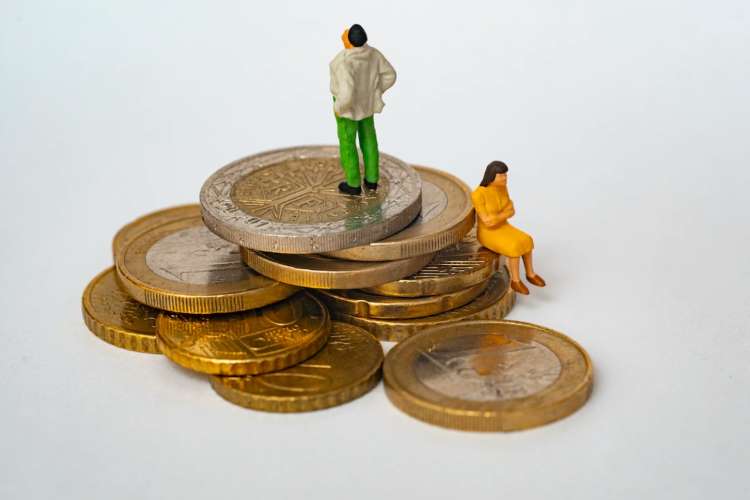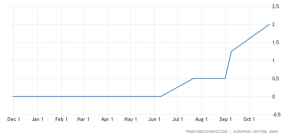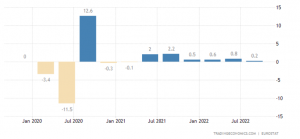
Can the global economy avert a deep recession is the question on everyone’s lips these days. While no one wants to hazard a guess, macroeconomic indicators point to the likelihood of some economies managing to do so. While some large economies such as China and India may avoid a hard landing, others like the UK and the eurozone are likely to face a recession next year. The US economy may escape with a mild recession because of slowing inflation and steady employment situation.
Eurozone is likely to have a deep recession and a painful recovery. The bloc was predicted to grow faster than other OECD countries at the beginning of the year. But now, GDP growth forecasts for the region point to a 0.2% growth in the third quarter compared with 0.8% in the preceding quarter. Three economies in eurozone — Belgium, Latvia and Austria – have already experienced contractions.
READ I Rising debt of state governments threatens to derail troubled Indian economy
Eurozone faces recession
The 19 member economies of the European Union have been facing economic hardships since the outbreak of the Ukraine-Russia war. Europe’s sanctions against Russia were met with disruptions in the supply of gas. Energy shortage has thrown major economies in the region into disarray. The crisis led to disruption in industrial production and double-digit inflation. Consumer confidence has hit several-decade highs and a recovery seems to be a slow and painful one.
Euro area interest rates since Dec

Euro area GDP growth rate

The eurozone GDP is projected to contract in the last quarter of this year and the first quarter of the next. A recession is defined as two consecutive quarters of contraction. The ECB has already raised policy rates thrice this year and is expected to continue with hikes. Jumbo interest rate hikes are effected to slow the overheated economy and contain inflation.
In the UK, the annual inflation rate rose to a new 41-year high in October due to a spike in energy prices. In the coming months, inflation could recede because of energy price caps set by the government and the expectations of a recession.
Fed seeks soft landing
Goldman Sachs has predicted 35% likelihood of a US recession in the coming year. “We still see a very plausible non-recessionary four-step path from the high-inflation economy of the present to a low-inflation economy of the future,” said a Goldman Sachs report. The Federal Reserve is trying to slow the economy slowly using jumbo interest rate hikes. Fed expects the economy to cool without a hard landing.
However, the financial markets and banks seem to be preparing for a recession. The banks are tightening their lending policies in anticipation of a recession while borrowers are becoming more and more hesitant to accumulate debt amid economic uncertainty. But banks do not perceive a likely recession as a catastrophic event because of the tighter prudential norms that came into force after the crisis of 2008.
In the aftermath of the global financial crisis, banks had stopped lending to risky borrowers. Funding risky businesses has been the preserve of shadow banks comprising hedge funds, and other nonbanking financial companies.
Asian economies are likely to show more resilience in the face of the global crisis. China’s economic revival that will follow the reopening of the economy after three years of coronavirus curbs will help recovery in other Asian economies, suggest a series of Morgan Stanley reports published on Sunday. Chinese economy is predicted to expand 5% next year, outpacing most emerging markets.

